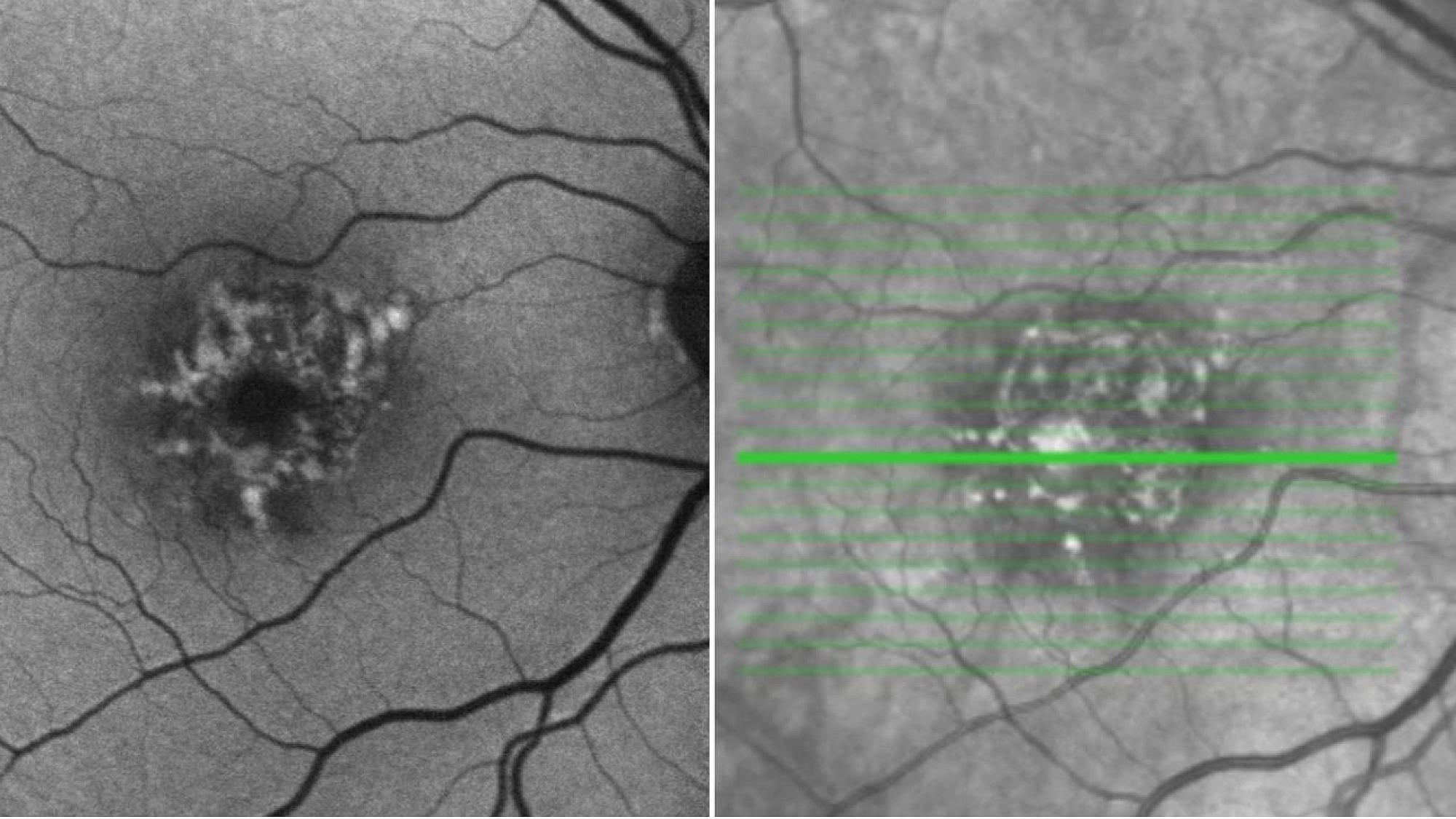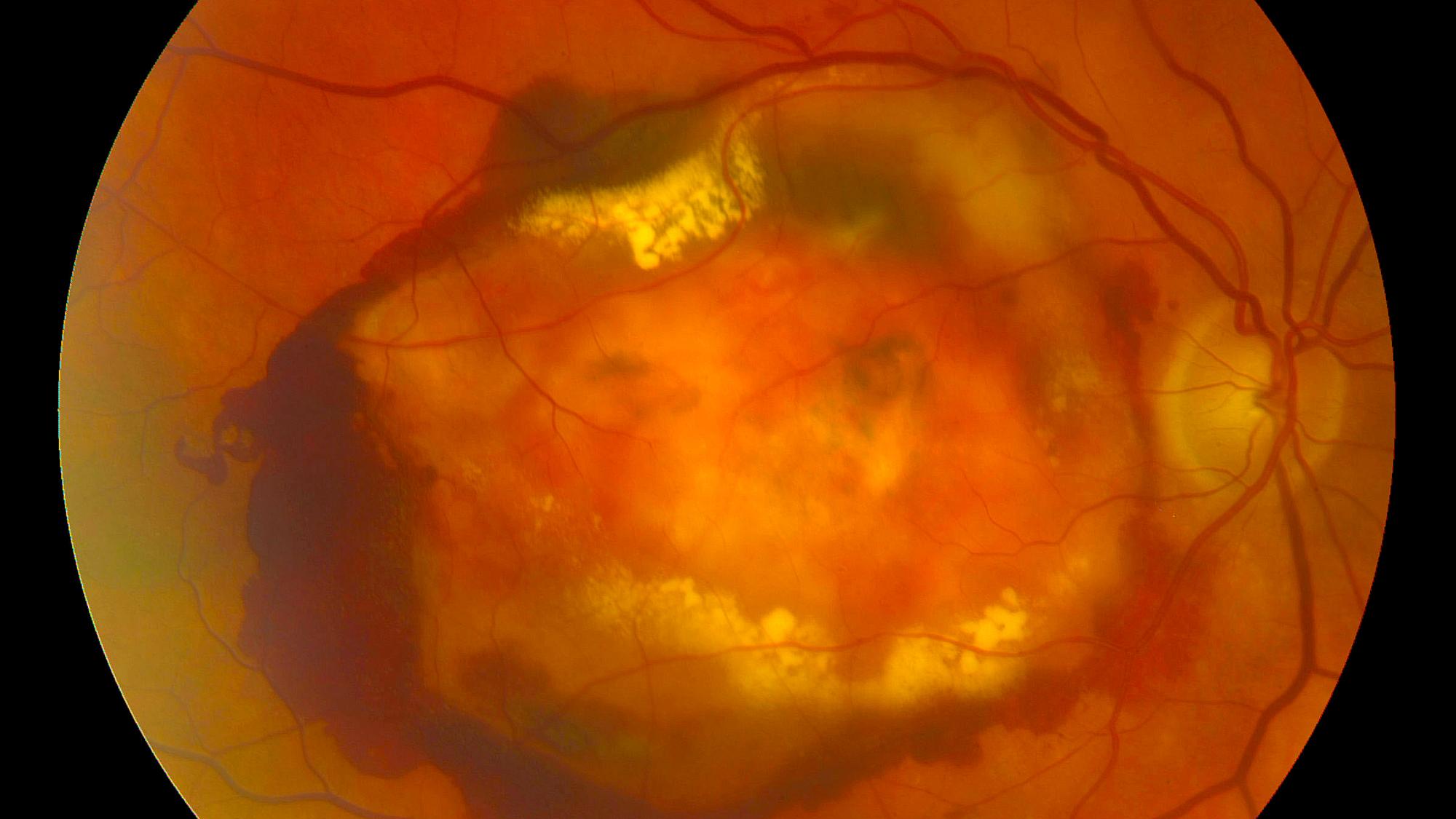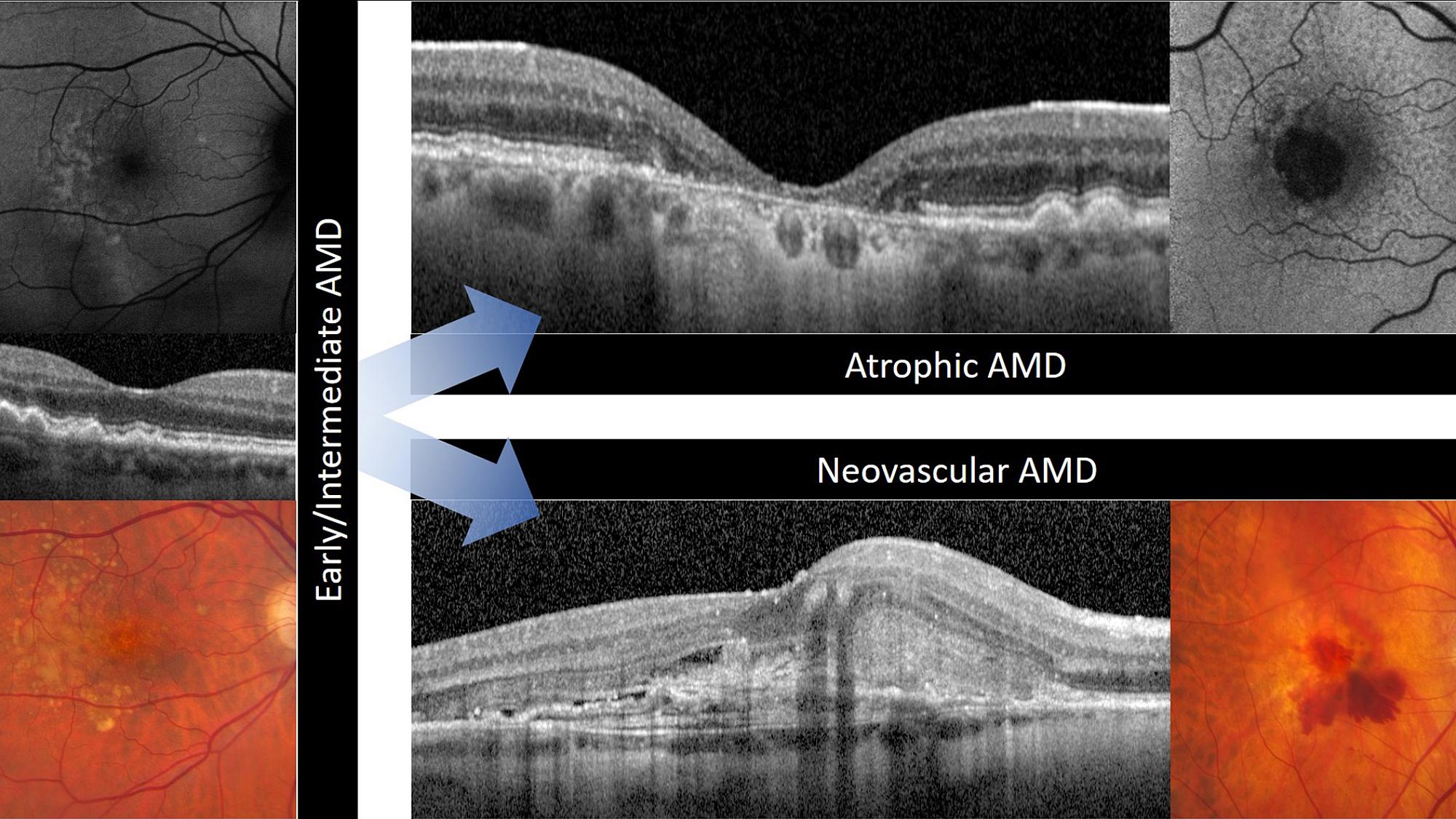
About Our Research
Dr. Monika Fleckenstein's primary research interest centers around degenerative retinal diseases, with a focus on age-related macular degeneration (AMD). She specializes in applying advanced high-resolution imaging technology to characterize AMD subtypes, identifying prognostic biomarkers for disease progression, and validating clinical endpoints for interventional trials.
Working Toward a Better Understanding of AMD
Dr. Fleckenstein and her team aim to gain unprecedented insights into AMD subtypes, offering practical applications for treatment decisions and clinical trial design.
Key Contributions:
- Thorough Phenotype Characterization: Dr. Fleckenstein and her team have meticulously characterized discrete AMD phenotypes, linking them to specific epidemiological and progression patterns.
- Prognostic Biomarkers: Dr. Fleckenstein's pivotal research aims to identify prognostic biomarkers for AMD progression, to offer valuable guidance for treatment decisions.
- AMD as a Spectrum: Team findings reveal AMD as a spectrum of conditions marked by diverse subtypes, challenging traditional views.
- Tailored Therapeutic Strategies: Dr. Fleckenstein’s work suggests the need for tailored therapeutic strategies directed at specific AMD subtypes, paving the way for more effective treatments.

Research Interests
- Age-related macular degeneration (AMD)
- Degenerative Retinal Diseases
- High-Resolution Imaging
- Identification of Prognostic Biomarkers for Disease Progression
- Validation of Clinical Endpoints for Interventional Trials
How Does Our Research Help Patients?
AMD, the leading cause of legal blindness in industrialized countries, is a complex condition involving the gradual breakdown of the central part of the retina responsible for clear vision. AMD is influenced by factors like aging, genetics, and environmental risks.
The disease involves the buildup of deposits called drusen, along with the gradual damage to light-sensitive cells in the eye. Chronic inflammation, lipid deposition, oxidative stress, and issues with maintaining the surrounding support structures are all part of the problem. Although huge strides have been made in understanding and treating some forms of AMD, there is still a significant unmet need, especially in preventing irreversible vision loss.
While there have been breakthroughs in treating certain types of AMD, preventing the ongoing damage to light-sensitive cells remains a challenge. High-resolution retinal imaging has given us a closer look at the different forms of AMD, revealing a variety of patterns and characteristics.
We now understand that AMD is not a single disease but more like a disease spectrum, with different subtypes and mechanisms at play. This insight suggests that tailoring treatments to specific subtypes and stages of AMD might be the key to preventing irreversible vision loss.
Despite significant research advancements, there remains a need to thoroughly understand the diversity within the AMD spectrum to devise more precise and targeted therapeutic approaches. Our research effort at the John A. Moran Eye Center involves a robust and close partnership with the Utah Retinal Reading Center (UREAD) and the Sharon Eccles Steele Center for Translational Medicine (SCTM).
About Dr. Fleckenstein
Dr. Fleckenstein joined the Moran Eye Center in July 2019 as a professor in the University of Utah Department of Ophthalmology & Visual Sciences.
After earning her medical degree at the University of Heidelberg, Germany, Dr. Fleckenstein honed her research skills as a research fellow at the Wilmer Eye Institute at Johns Hopkins University and later completed her ophthalmology residency at the University of Bonn, Germany.
Her clinical practice at the Moran Eye Center includes the management and medical treatment of retinal diseases, with a special emphasis on AMD.
Updates from Our Team
New Review Provides the Latest on AMD for Doctors and Patients
The review in JAMA, co-authored by Moran Eye Center experts Monika Fleckenstein, MD, and Steffen Schmitz-Valckenberg, MD, includes the latest on AMD risk factors, treatments, and much more.
Moran Scientists Awarded $3.8 Million for Leading-Edge AMD Research
Backed by $3.8 million in new federal funding, internationally renowned researchers Monika Fleckenstein, MD, and Steffen Schmitz-Valckenberg, MD, are forging new ground in age-related macular degeneration (AMD) research.
Patient Testing Begins for New AMD Therapy Developed at Moran
Patient testing is underway for a new therapy for age-related macular degeneration (AMD) developed by the John A. Moran Eye Center’s Sharon Eccles Steele Center for Translational Medicine (SCTM).
Researchers Link Patient Genetics to Rates of Disease Progression and Vision Loss in AMD
Newly published research identifies clinical differences in the progression of age-related macular degeneration (AMD) based on the genes directing it.
Reading Ability and Speed Identified as Crucial Measures of Visual Decline in AMD Patients
Researchers have confirmed reading ability and reading speed are important functional tests that can reflect the progression of age-related macular degeneration (AMD).
Contact Us
For research grant inquiries:
- "The Impact of Non-Exudative Type 1 Macular Neovascularization on AMD Progression"
Ray Nelson, study coordinator, 801-585-1890 or Ray.nelson@hsc.utah.edu
- "Progression of Early Atrophic Lesions in AMD"
Karen Daynes, study coordinator, 801-587-2978 or Karen.daynes@hsc.utah.edu




